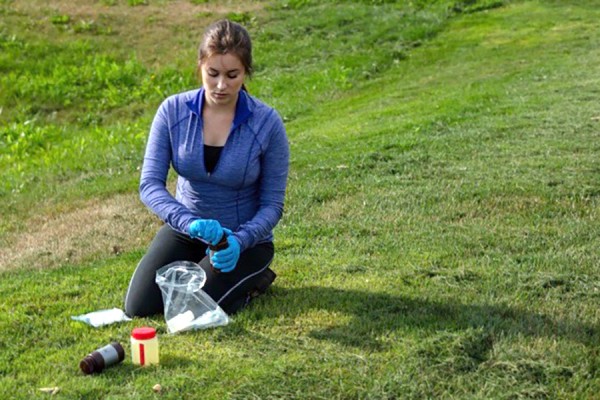 Biology student Lauren Goddard collects samples in the field.
Biology student Lauren Goddard collects samples in the field.
Lauren Goddard spent her summer in the mud.
At the end of her first year of study in biological science, Goddard was one of three students hired for a summer internship at the Great Lakes Institute for Environmental Research (GLIER).
Chris Weisener, a professor in GLIER and the Department of Earth and Environmental Sciences, advertised for summer interns to assist his doctoral student Nick Falk with an upper watershed study, which would have them looking at nutrient sources and sinks within the sediment of streams in Essex County.
“Lauren was a bit of an outlier,” says Dr. Weisener. “Usually first years don’t apply to these ads.”
Goddard says she was “really interested in getting research experience” and decided to apply even though she was a long shot. The other two student interns were in their third and fourth years of study.
Weisener admits there is a misconception that professors and researchers are looking only for people with prior lab experience.
“We recognize that a lot of students that join have no field experience — that they are all in the same boat. At the end of the day, it is our job and responsibility to help train the students, and to give them that experience. We do ourselves a disservice if we don’t,” he says.
“This opportunity was great because the students were out in the field collecting samples on the ground and getting muddy in the rivers. It was kind of fun.”
The students made trips to the field on only several targeted days throughout the summer. They collected samples and brought them back to the lab, and then were trained in extracting genetic information.
“I was given the chance to learn all these really cool techniques,” says Goddard. “Even just learning how to use some of the equipment, most that I’ve never even seen before, was a great experience.”
Despite being a bit intimidated as the youngest member of the team, Goddard says she will apply again when internships are offered in the winter and summer semesters.
—Darko Milenkovic
